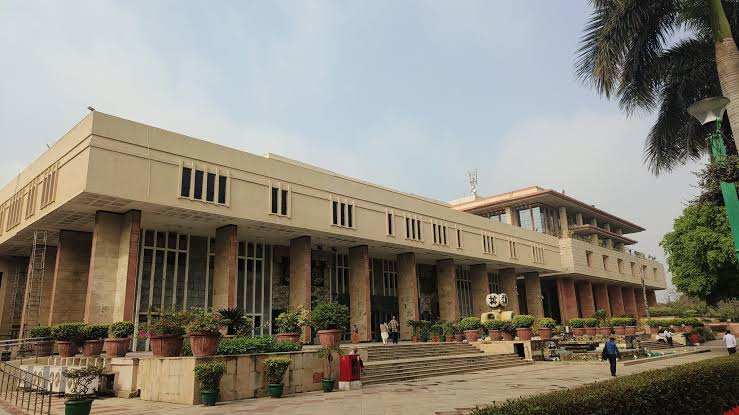


In the absence of legal protection, it would be impossible for kind-hearted individuals to act out of benevolence and help road accident victims, the Delhi High Court recently observed [Kanta v. Gurvinder Kapoor & Anr].
Justice Dharmesh Sharma ordered compensation to a widow who was denied the relief on the ground that her husband wasn’t killed in the course of his employment as a driver, but when he was helping road accident victims.The Court was acting on an appeal against an order of the Employee Compensation (EC) Commissioner denying compensation to the man's widow under the provisions of the EC Act.
When the judge examined the circumstances surrounding the accident, he said that the underlying judicial philosophy meant that a bystander who was witness to an accident or someone who was a Good Samaritan should not be harassed or intimidated only because they came forward and provided immediate assistance to accident victims.
"Extending the same judicial philosophy to logical ends, this Court finds that the learned commissioner while passing the impugned judgment clearly overlooked the broader or the larger aspect of the whole scenario that helping an injured on a public road/highway is prime duty of everyone,” the Court held.
The deceased was driving his truck when he saw a road accident victim on opposite side of a national highway. He stopped his truck, got off and helped the injured. However, on his return to the truck, a speeding vehicle hit him. He was rushed to a nearby hospital, but was declared dead on arrival. Following the incident, the man’s widow sought compensation from the registered owner of the vehicle, who contested her claims. The matter later reached the compensation commissioner, who held that the driver leaving his vehicle to help people who met with an accident did so not as part of his duty, and that his employer was not liable to pay compensation to his kin.
The High Court, however, found the commissioner’s order “not only unconscionable and patently erroneous in law and facts but also against the whole purpose and object of the EC Act”.
The Court highlighted that an individual, who out of sheer generosity helps someone in distress, was a ‘Good Samaritan’ according to the parable in Gospel of Luke in the Holy Bible. “Thus, Good Samaritan laws shield/protect a rescuer from being sued if the rescue miscarries, except in cases of gross negligence or recklessness. The objective is to reduce any hesitation bystanders may have about giving assistance to those who need such assistance. At the cost of repetition, the reluctance to incur legal trouble is one factor that Good Samaritan laws address,” the Court noted.Justice Sharma even referred to the views on Good Samaritan law invoked internationally to underscore that those who provide help to a fellow person in need of aid out of benevolence should be protected.
“In the absence of such legal protection, attributes such as ‘kind-heartedness’, ‘kindness’, ‘empathy’ towards strangers, which makes humans the social animals they are, who rely on each other for survival and emotional well-being, would be stripped of their very humanity rendering these attributes redundant. Thus, in absence of legal protection, it would become impossible for individuals with kind hearts to act out of benevolence, help a person in distress or a victim of motor vehicle accident,” the Court outlined. The Court derived its view from Article 51A, which it observed was a constant reminder to every citizen of this country to observe basic norms of good etiquette, attitudes and dispositions to promote and further the objectives of establishing a welfare society.Setting aside the order denying the compensation to the widow, the Court directed the matter to be remanded to the Employee Commissioner who would assess the quantum of compensation which was to be paid to the claimant within two months.
Keeping in mind the prolonged struggle of the widow, the Court ordered interim compensation of ₹5 lakh to her.
Advocates Vipin Kumar Mishra, Lalit Kumar Gupta and Manoj Kumar Yadav appeared for the claimant widow.
TAGS: Delhi High Court Compensation Good Samaritan EC Act Road Accident